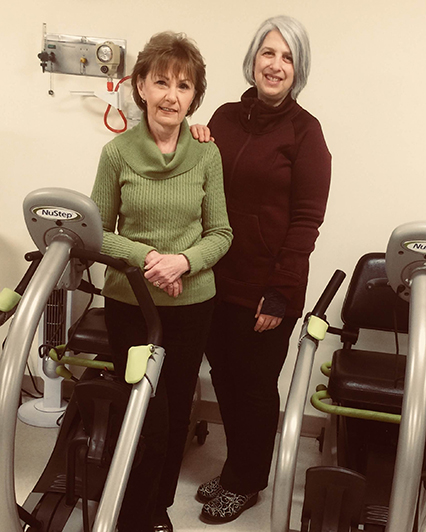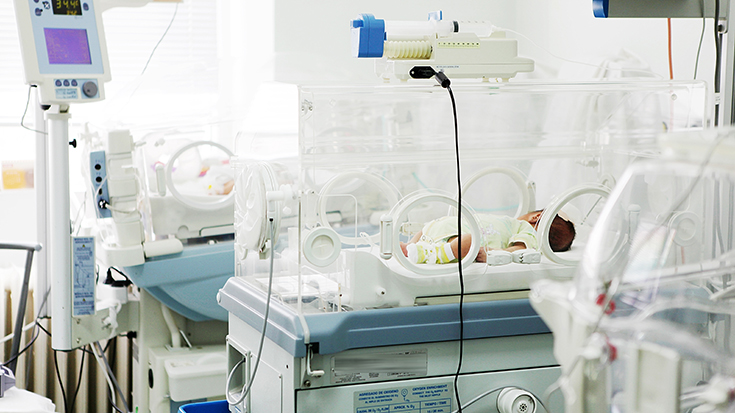
The patients respiratory therapists see at the bedside every day are in need of immediate care to treat their acute conditions. But those very same patients — many of them suffering from chronic lung conditions like asthma and COPD — need help beyond that acute exacerbation too. How do RTs care for the whole patient?
In the first of a new series of three articles we’ll be sharing over the next few months, two therapists tell their stories.
Building trust
Sandy Ollivier, RRT, AE-C, is a COPD coordinator at Renown Regional Medical Center in Reno, NV. As such, she delivers case management services within the hospital’s population health program.
“We screen patients that come into our hospital for related lung problems for opportunities to participate in our inpatient education program, potential referral to our Community Outreach program with our local emergency responders, outpatient smoking cessation, and pulmonary classes,” Ollivier said. “If they struggle with limited resources, we connect them with our social services group.”
The hospital has made it a priority to have the same team members see patients with repeated admissions so they can get to know these clinicians and build trust in them. That often makes a big difference, as it did with one recent 66-year-old who was back in the hospital with yet another acute exacerbation.
“We had approached her multiple times about our inpatient COPD education program to help her understand what was bringing her back in to the hospital,” Ollivier said. She always said no thanks, but this time she said yes.
“During the interaction she stated that no one really explained how her COPD medications actually worked and why smoking was a difficult habit to quit,” Ollivier said. “She began taking her medications and considered looking at our stop smoking classes.”
Ollivier spoke with her over the phone at her nine month follow up and was thrilled to learn she had signed up for a stop smoking class, had been smoke free for six weeks, and was now feeling great.
Dance it out

The pulmonary rehabilitation program at Brigham and Women’s Hospital in Boston, MA, is a place where patients come to regain their quality of life. According to Priscilla Perruzzi, BS, RRT, staff members do everything they can to foster a warm feeling that lets the patients know they are in a place where all their needs will be cared for and recognized.
“Staff-wise we are a small department but heart-wise we are big,” Perruzzi said. “While we are very focused on our work, we do try to create a relaxed atmosphere so that patients are comfortable with asking questions and sharing of themselves with the staff and fellow participants—a place that they look forward to even if they are not particularly ‘sold’ on exercising.”
In the course of helping these patients regain lost quality of life, sometimes they learn things that call for an outside-the-box approach, and that was evident with a young woman, just 18 years of age, who came to their program from Saudi Arabia.
She was getting ready to have major abdominal surgery–one of many she had experienced since the age of three–and had just lost her mother the year before.
“Although she was here from Saudi Arabia with a brother and sister, she missed her mother terribly,” Perruzzi said. “Her determination to get as strong as possible was an inspiration to her fellow classmates, and her beautiful smile would always make them smile.”
One day the staff noticed her focusing on her cell phone while she was exercising and asked her about the music she was listening to. It was her favorite singer, and through her interpreter they learned she loved to dance to her music.
Shortly before her surgery they had a class that ended up being female only.
“We saw this as the perfect chance to have her share some of her culture with us–and incorporate a different form of aerobic exercise into the class–by having her play her favorite songs and teach the class how to dance,” Perruzzi said.
“What a sight to see a group of women in a circle surrounding her with their caring support as we all attempted to follow her steps. Her smile, as they say, was priceless.”
More resources available
Want to learn about Patient Centric Care? Check out the Big Ideas Theater episode where Garry Kauffman, MPA, RRT, FAARC, shares his perspective on the importance and value of practicing patient centric care. To Kauffman, this means providing care that is respectful of and responsive to the patient’s preferences, needs and values.
Email newsroom@aarc.org with questions or comments, we’d love to hear from you.

















